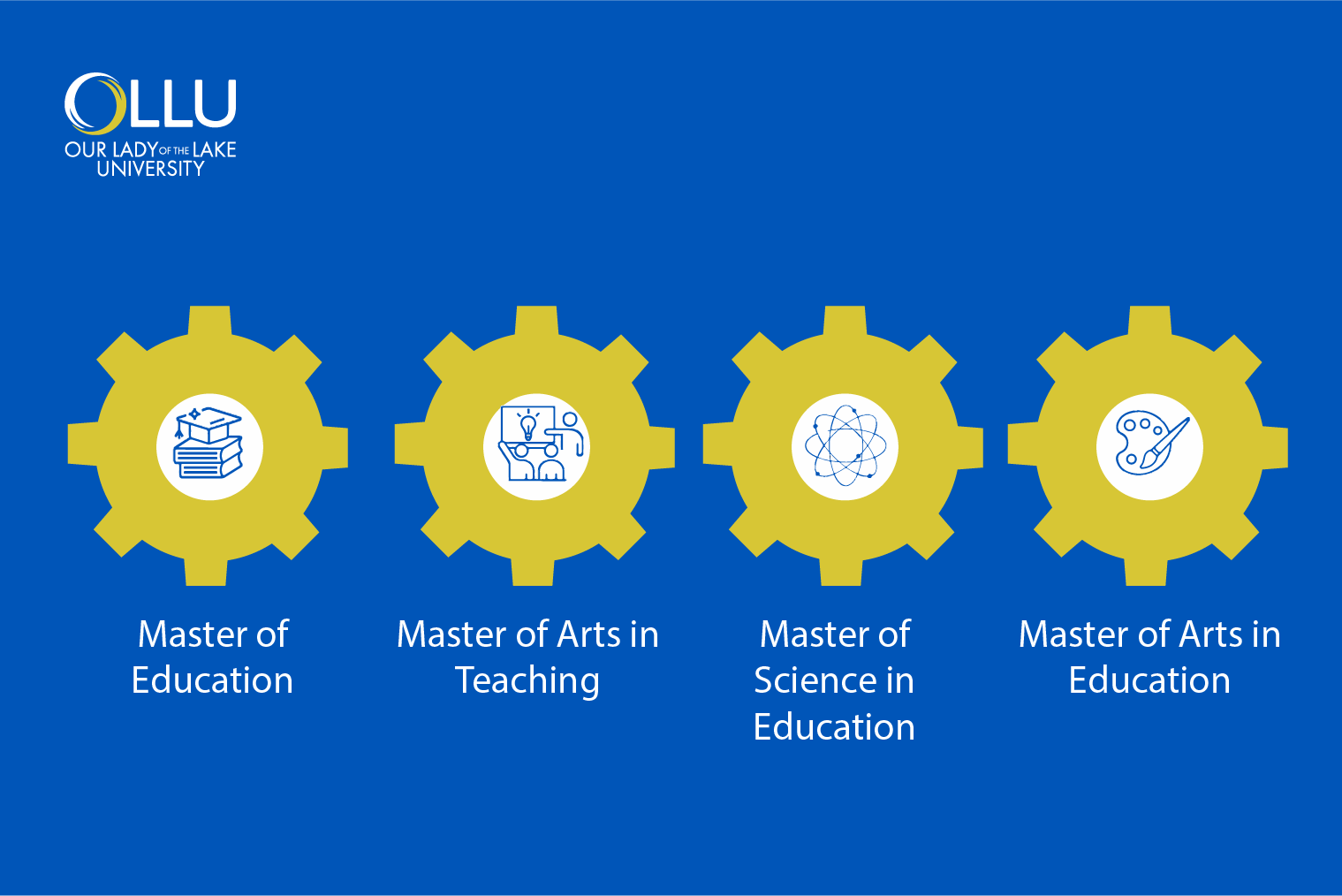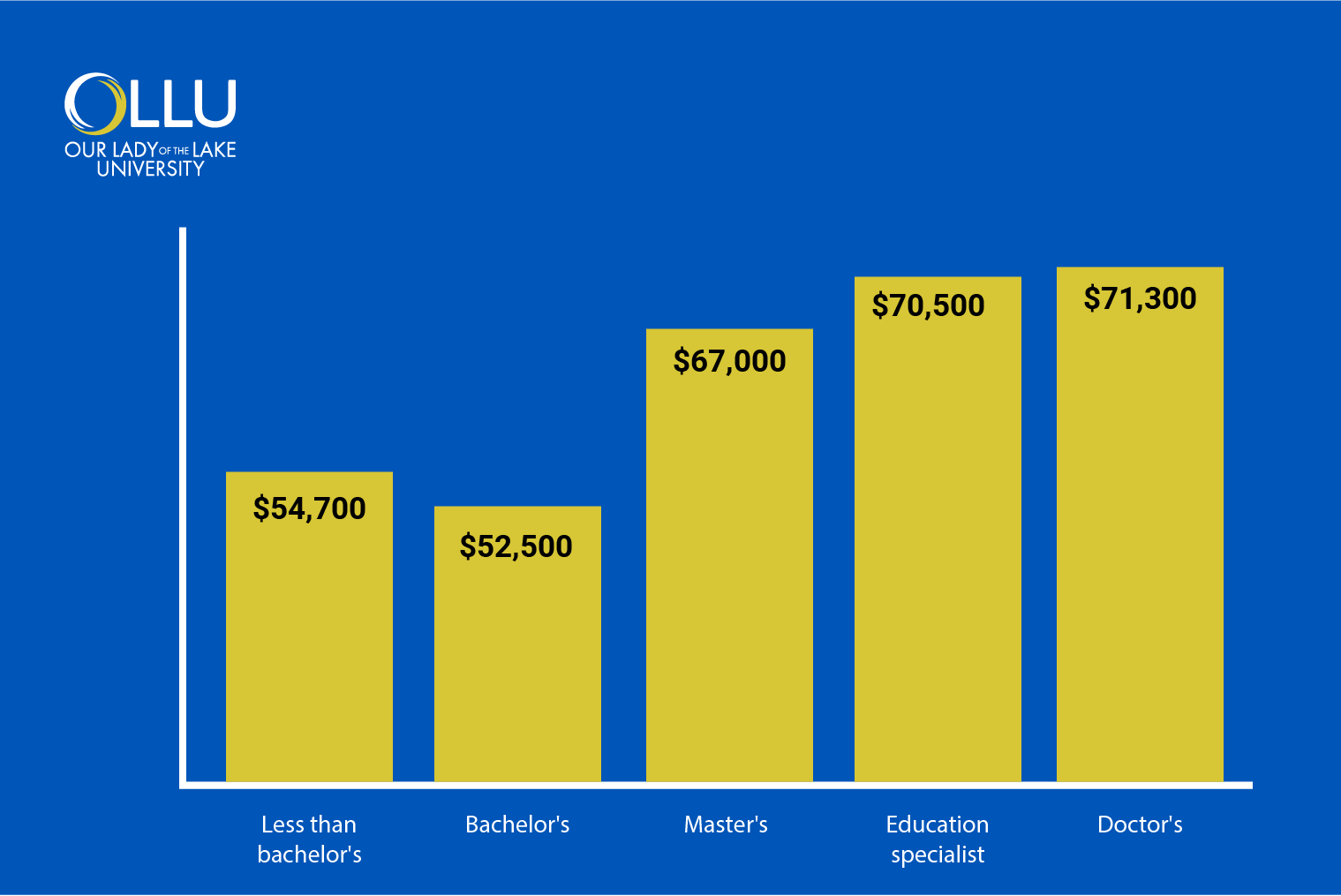Types Of Master’s Degrees In Education You Can Pursue
Nov 28, 2023

In the ever-evolving landscape of education, pursuing advanced degrees has become a symbol of commitment to professional growth and an imperative catalyst for career progression and financial stability.
As the demands on the education sector intensify, so does the need for educators who can navigate the complexities of modern pedagogy, educational leadership, and curriculum development.
So, this is the best time to take the first step toward advanced education and explore the various master's degrees in Education. This article will introduce you to the diverse options available and unlock new opportunities for your career growth.
Types of Master's Degrees in Education
There are four primary categories of master's degrees in education:
- Master of Education (MEd)
- Master of Arts in Teaching (MAT)
- Master of Science in Education (MSEd)
- Master of Arts in Education (MAEd)
The importance of these degrees lies in the fact that they equip educators with the necessary competencies to enhance their teaching, research, and administrative skills. With a master's degree in Education, educators can meet the diverse needs of their students as well as qualify for higher-paying positions and career advancement opportunities.
Remember, the name of the degree can vary depending on the university's internal designation and accrediting agency.
Master of Education (MEd)
Master of Education (MEd) is a specialized degree program designed to equip you with the skills and knowledge you need to excel in the field of education. With a focus on educational leadership and policy development, this program provides you with a comprehensive understanding of the education system, including the latest strategies and best practices.
You'll also gain specialized skills in research, data analysis, and decision-making, which are essential for effective leadership. With a Master of Education degree, you'll be well-prepared to take on leadership roles in schools, universities, government agencies, and other educational institutions.
The Master of Education (MEd) degree program offers a variety of foundation courses as well as courses tailored for the concentration, which may include:
Foundation Courses:
- Trends and Issues in Multicultural Education in Diverse Societies
- Research Methods and Foundation
- Assessment Principles and Implementation
- Teacher as Leader, Reflective Practitioner, and Advocate
- Curriculum and Instruction: Philosophy, Analysis and Implementation
- Diversity and Special Education
Concentration Courses:
- Instructional Strategies for Diverse Population
- Educational Policy and Improvement
- Place-Based Learning: Project ACORN
- Reading and Writing Assessment
Specializations
The MEd degree offers a range of specializations to enhance your knowledge and expertise in education. These include:
- Educational Leadership
- Integrated Science Teaching
- Curriculum and Instruction
- Diverse Populations
- School Counseling
- Higher Education Leadership
- Educational Technology
- Teaching English Language Learners
- Literacy and Digital Learning
- Inclusive Learning and Special Education
Master of Science in Education (MSEd)
The Master of Science in Education (MSEd) offers a unique, research-oriented approach to education that emphasizes the use of empirical research to inform curriculum development and educational psychology. By combining theoretical and practical knowledge, the MSEd program equips students with the skills needed to design effective curricula and implement evidence-based teaching practices.
Upon graduation, you'll hold a highly valued degree that demonstrates your deep understanding of educational research methods, data analysis, and evidence-based decision-making.
Specializations
The MSEd degree offers various concentrations or specializations depending on the school you're interested in. Some of the common specializations include:
- Special Education
- Technology and Learning
- Literacy and Language Instruction
- Science and Mathematics Education
- English Language Learner (ELL) or English as a Second Language (ESL)
- Educational Psychology
- Arts Integration
- Educational Studies
- Teacher Leadership
- Higher Education
- Curriculum Instruction
These specializations allow you to specialize in a particular area of education and gain in-depth knowledge and skills that are relevant to your career goals and interests.
Master of Arts in Teaching (MAT)
As an aspiring educator, the Master of Arts in Teaching (MAT) degree program will equip you with practical teaching skills and subject-specific expertise to excel in diverse classroom settings. This degree is for individuals who want to transition from another field into teaching and earn initial teacher certification.You will gain a deep understanding of different teaching methodologies, instructional strategies, and assessment techniques that can be applied to different academic subjects and grade levels.
In addition, you will learn how to create inclusive and engaging learning environments that foster academic and personal growth for all students. The MAT program is the perfect choice if you aspire to become an educational leader and make a difference in the world of education.
Specializations
If you are looking to pursue a Master of Arts in Teaching degree, you will have the option to specialize in different areas. Some of the common concentrations that are available for MAT students include the following:
- Elementary with an additional certification in bilingual education
- Elementary with an additional certification in English as a second language (ESL)
- Elementary with an additional certification in special education
- Secondary or All-level certification with an additional certification in English as a second language (ESL)
Master of Arts in Education (MAE)
The Master of Arts in Education (MAE) program is designed to provide you with a deeper understanding of the theoretical and scholarly aspects of education, covering a wide range of topics such as educational psychology, curriculum and instruction, research methods, and educational leadership.
With a combination of coursework, research, and practical experiences, you'll gain the knowledge and skills you need to make a real difference in the field of education. By collaborating with peers and faculty members, you'll be part of a network of professionals who share your commitment to enhancing the educational experience for all learners.
Specializations
Many universities offer a Master of Arts in Education (MAE) degree with a variety of concentrations or specializations to choose from. Some of the popular concentrations that are available across different schools include:
- Special Education
- Technology and Learning
- Curriculum Instruction
- Literacy and Language Instruction
- Science and Mathematics Education
- English Language Learner (ELL) or English as a Second Language (ESL)
- Educational Psychology
- Educational Studies
- Teacher Leadership
- Higher Education
- Arts Integration
Career Prospects
Pursuing a master's degree and obtaining additional certifications and specializations can significantly improve your career prospects. Did you know that over half of the public school teachers hold a master's degree and earn an average salary of $67,000 ? However, this figure can vary based on various factors. Read on to find out!
Salary Factors and Benefits of Master's Degrees in Education

Your location can significantly influence your teacher salary. For example, teachers with a master's degree in states like California and Washington tend to earn higher salaries.
Here are the ten cities where teachers with a master's degree earn average annual salaries higher than the national average :
- Soledad, CA - $104,873
- Santa Clara, CA - $88,894
- Burlingame, CA - $86,131
- San Francisco, CA - $84,901
- Marysville, WA - $83,884
- Cupertino, CA - $83,508
- San Jose, CA - $82,276
- Alexandria, VA - $81,007
- Redwood City, CA - $80,611
- Oakland, CA - $80,520
Experience is another factor impacting your earnings. For example, teachers who hold a master's degree and have 0-1 years of experience earn an average salary between $41,000 - $73,000 a year. Those with 4-6 years of experience can expect around $48,000 - $87,000 yearly. Meanwhile, teachers with 15+ years of experience reportedly earn an annual salary between $56,000 - $101,000.
In addition, obtaining certifications and specializations like educational leadership, curriculum development, and special education can also lead to salary growth. In fact, educational leaders can earn up to $91,022 annually, which is significantly higher than classroom teachers who earn around $57,337 .
The Bottom Line
Upgrade your teaching game with a master's degree in Education! It's the key to enhancing your skills, meeting diverse student needs, and unlocking exciting new career paths like curriculum coordination and educational administration. Plus, with over half of public school teachers holding a master's degree, it's essential for career growth and financial stability. Don't miss out on the earning potential and long-term professional growth that comes with advanced education.
Are you ready to start your OLLU journey? Request information today to discover everything OLLU has to offer.
Frequently Asked Questions (FAQs)
Can I get a master's in Education without a bachelor's in Education?
Yes, you can. Many universities offer alternative pathways for individuals who hold a bachelor's degree in a different field but wish to pursue a career in education. The Master of Arts in Teaching (MAT) is designed for individuals who want to transition to the teaching field. It prepares students for initial teacher certification.
How long does it take to get a master's degree in Education?
Earning a master's degree typically requires two years of full-time study. However, there are alternative paths you can take. One option is to complete it in two semesters along with a summer term, while another option is to take four semesters (two academic years) to complete the program. The duration of the program may vary depending on the university and the specific program you choose to pursue.
Can I get a master's degree in Education if my bachelor's degree is in a different field?
Yes, you can. As we already established, some universities offer alternative pathways for individuals who hold a bachelor's degree in a different field but wish to pursue a career in education.